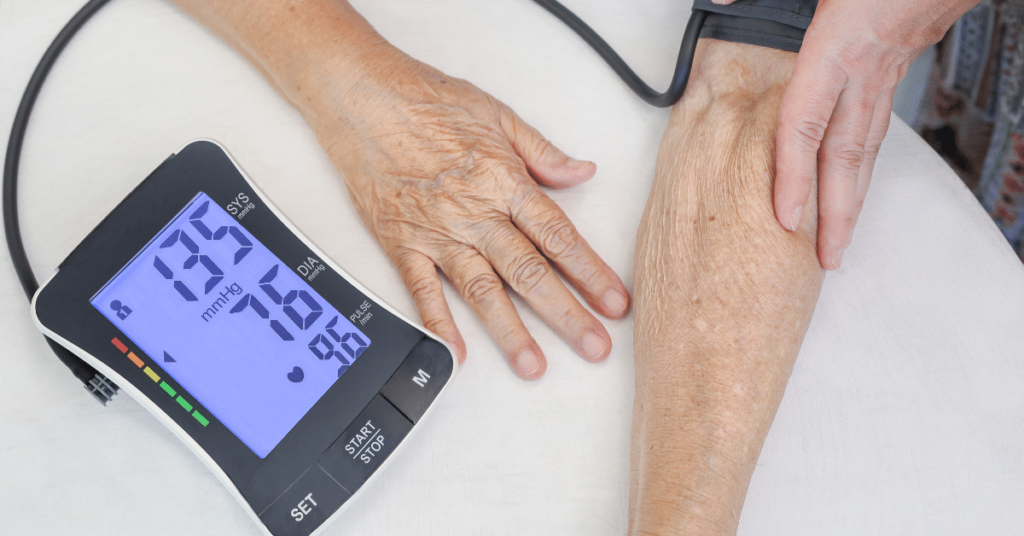Contents
Hypertension And Age
Hypertension and age are interlinked with each other. Anyone can experience high blood pressure (hypertension). But, some people have a greater chance of having it because of factors that can not be changed. Some of these factors are age, race, and family history. The Elderly seems to have increased blood pressure with age.
None of these factors are in your control including age. As you age, your vascular system goes through various changes. Arteries get stiffer, which causes high blood pressure. Blood pressure keeps changing as we age.
The normal blood pressure is 120/80 mmHg. But it fluctuates throughout your life. The normal blood pressure as per your age could change.
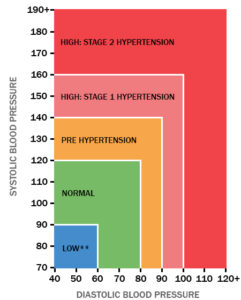
Blood Pressure Range According To Age
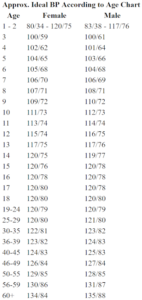
As we see in this chart, approx ideal blood pressure of both males and females is changing based on their age. It starts with a smaller number because If we look down at the chart numbers keep getting greater. The age when most people start worrying about their blood pressure is after they are 30. That is when your blood pressure exceeds the normal limit of 120/80. This change could be because you are less stressed when you are younger. And maybe that is why you also have ideal blood pressure in your teenage years. But let’s say if you are 60 or above, then your blood pressure will increase up to 134 or 135 systolic blood pressure. It may vary slightly from person to person.
An increase in blood pressure has always been taken as an inevitable consequence of aging. However, the number of ideal blood pressure has changed in elders. According to a study, the elderly should take medication for hypertension only when their blood pressure exceeds 150/90. Which sets the bar for treatment higher. Until now, treatment for the elderly was recommended when their blood pressure exceeds 140/90. However, people with chronic conditions have been prescribed medication when their blood pressure is more than 130/80.
The elderly develop many health conditions that need medication, some experts believe that treating hypertension earlier with drugs shows very little benefits in the elderly. That is why it is recommended to not take too many medications for the elderly.
Isolated Systolic Hypertension In Elderly
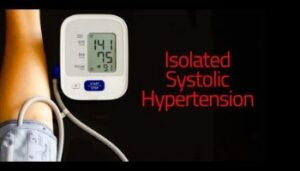
Isolated systolic hypertension is an increase in systolic but not diastolic pressure. This is the most prevalent type of hypertension found in those aged above 50. The increase in blood pressure with age is mostly associated with structural changes in blood vessels, stiffness in arteries increases the blood pressure, and is associated with increased risk of cardiovascular diseases.
Isolated systolic hypertension is easily diagnosed in the elderly by checking their pulse pressure. Because, in this condition, due to decreased diastolic pressure and increased systolic pressure the pulse pressure is found to be increased.
All evidence indicates that treating the elderly hypertensive patient will reduce the risk of heart disease but it is not guaranteed in the very elderly.
Blood Pressure Management Tip For Elderly
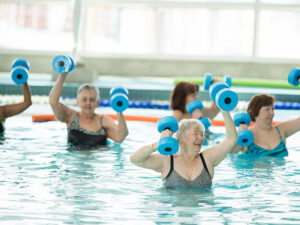 Elders can do the following things to prevent blood pressure-
Elders can do the following things to prevent blood pressure-
- Eating healthy
- Taking good sleep
- Reducing stress
- Keeping a healthy weight
- Staying active
- Cutting down on salt
- Quitting smoking
- Drinking minimal alcohol
So, this is all about hypertension in the elderly. If you are elderly, then consult a doctor to better understand the situation. You will get treatment according to your age, weight, and lifestyle.
A Word From Mantra Care
If you are looking for an affordable hypertension treatment MantraCare can help- Book a trial hypertension care session
